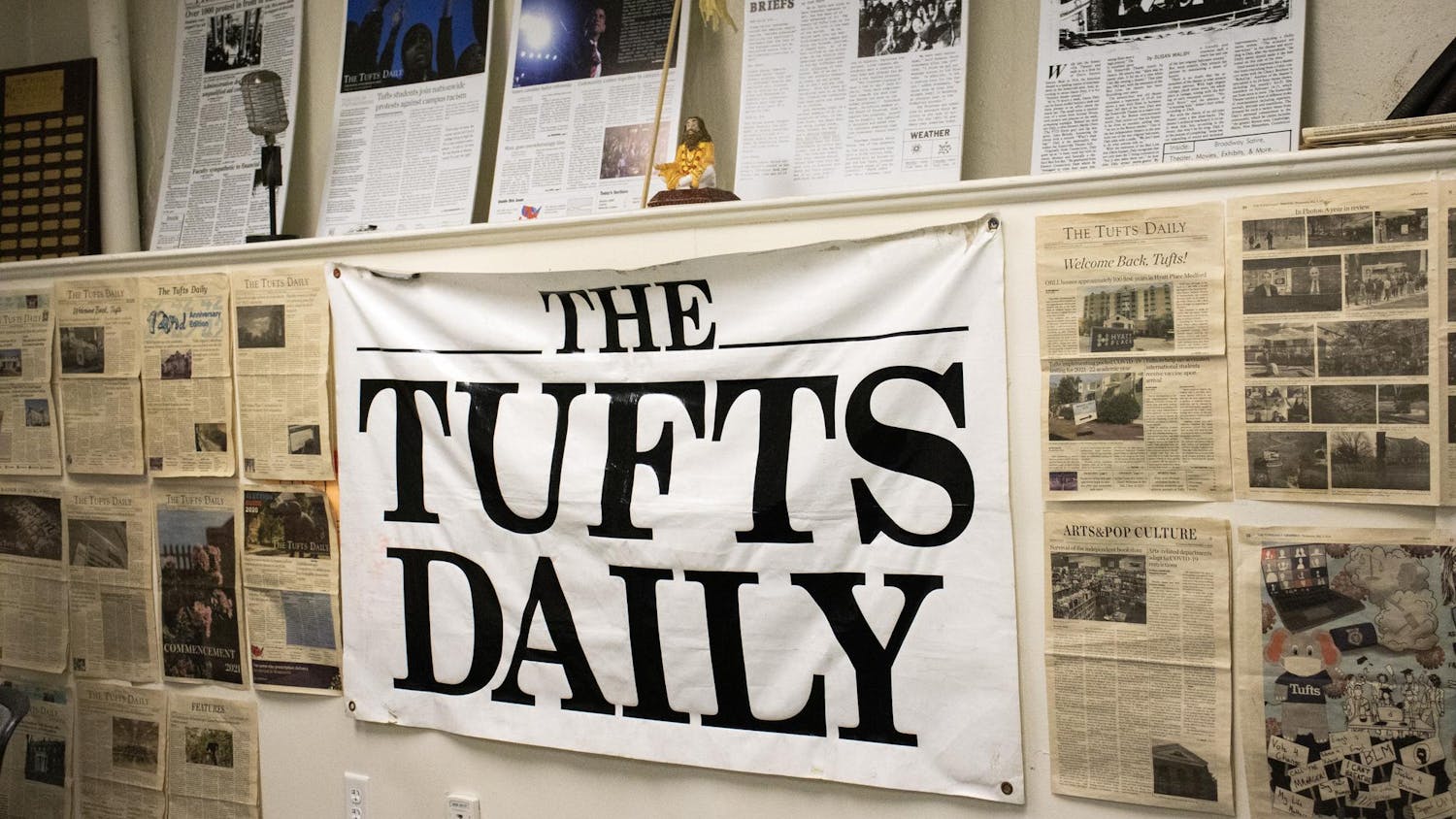Content warning: This op-ed discusses rape and sexual assault.
This is my fourth and final year participating in It Happens Here. I’ve read over 150 narratives belonging to my peers, my friends and my loved ones. I’ve cried hot tears for every single narrative. I’ve worn their words with the trauma I wear on my own body. I’ve wondered if I am doing too much, but more often I wonder if I am not doing enough.
I am a survivor, but I don’t usually feel that way. “Survivor” feels terminal, like an end-point, like someone who has made it, who has finished, who is 'over it.' My state of existence post-assault does not feel like a part of my identity or who I am. Rather, it is something I have to practice every day.
I am surviving, moving forward, pressing onward. I breathe and focus on how the cool air coming through my nose feels hot against my tongue when I exhale. I sit still and I catalogue how the light changes throughout the day. I observe my own body, taking note and giving names to the parts of myself that I love, even when I have to search long and hard for them. Occasionally, I fail. Those are the days that I find the strength to forgive myself.
It’s been almost six years since rape first happened to me. I memorized the date and the hour. I remember how sterile and interrogative it sounded when lawyers read it out loud: “On the night of June the 28th, 2011 between the hours of 1 and 4 a.m....” Sometimes, in a panic, I forget. Was it the 27th? The 29th? Was it a dream? Did it happen at all? But then I count the faint scars on my skin and I remember, I remember, I remember.
For the past three years, I’ve walked out on stage and read narratives -- those of strangers, my friends, and yes, even ones that I have written, but I’ve never actually read the story of what happened to me, of how it is that I became a person who has to survive. I feel safer discussing how surviving impacts my life and how I exist in this world and on this campus as someone who survives. My story of what 'happened' is tucked away, folded in with the hurt of others on the It Happens Here website. A nervous stranger wearing a Kappa sweatshirt my freshman year read my narrative too quickly. I sat with a friend who held me as I shook in Cohen.
I don’t talk about what happened, about the rape that happened to me. It hurts, and in the four years that my college career has centered on sexual violence prevention activism, I’ve never told. Re-exposing myself to what happened to me is important for my recovery, but I am choosing to do that privately. My trauma is mine -- not by choice, but now it is mine to share, if I choose. I had no choice in what happened to me. I do now have a choice. I have the choice to tell or not to tell. I am not ready to tell, and I will likely never be.
This year, I will not read and I will not walk across stage. It’s time for me to say goodbye to the event I have carried, to the event which has carried me. If you choose to attend It Happens Here this year, I encourage you to consider the strength it takes to write and read a narrative. I also hope you will consider the strength it takes to decide not to write or read, to recognize the bravery in deciding to acknowledge our own hurt and deciding that right now we must carry our hurt on our own.
My unwillingness to speak about my experience with assault does not reflect my strength or my growth. Rather, in finding my own limitations, I am learning how to accept my pain as my own, to take ownership of it, even to love it. I am one of the many survivors on this campus who will not speak at It Happens Here. Our experiences are no less valid, no less painful or difficult to grapple with. Speaking our truths and talking about what happened takes tremendous bravery, but we are no less brave when surviving means getting out of bed in the morning, walking across campus, deciding to take time away from Tufts or trusting yourself to fall in love again.
Strength is not defined by the speed of our recovery. Recovery doesn’t have a beginning or an end because trauma is not linear. Recovery is, rather, our ability to look up at the night sky and see the moon and stars in addition to sheaths of darkness. Recovery is placing our palms open in front of us and receiving our own hurt while also receiving love and care from those around us.
Strength and hurt are not mutually exclusive. Every day, I remind myself that my body holds great weight and gives great light. I’ve named one of my vertebrae Grace and one of my ribs Fury, for I am learning that it is when I am holding the most pain that I need to love myself the most.
Two years ago, I wrote an op-ed in The Tufts Daily that closed with, “I hope you give yourself time to heal, to love and to be loved. Take a deep breath and remember that we are here to become whole again.” Today, I write to say that I am not whole, and I may never be: That’s okay. I have found peace with that. Through my recovery, I’m finding strength, learning to heal, learning to love and, most difficult of all, learning to accept love in return.
More from The Tufts Daily





